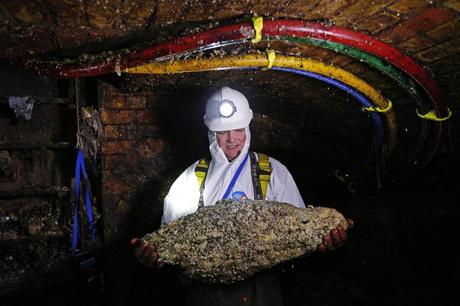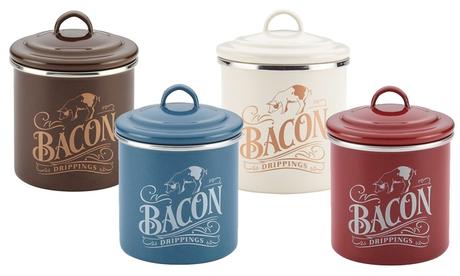Plumbing emergencies – or plumbergencies (as we at Adams and Son Plumbing call them) – are a nightmare for everyone. While some can’t be avoided, many conditions that lead to those panicked middle-of-the-night calls to us are preventable. It’s just a matter of being thoughtful and taking care to do things around the house the right way, rather than the easy way.
Disposing of grease, for example.
Oh, sure – we understand. Running grease from the skillet in which we prepared that delicious bacon just this once down the kitchen sink won’t hurt anything. Here’s our list of excuses er, reasons, for doing so:
- Don’t want bacon sandwich to get cold.
- Running late for work.
- Want to get back to watching the game.
- Don’t want bacon sandwich to get cold.
Bacon – delicious, but dangerous in more ways than one
That’s the basic issue. If you don’t dispose of bacon grease – or any kind of liquefied fat produced from cooking – as soon as it cools enough to no longer cause a third-degree burn, it will congeal into a solid that’s hard to clean from the pan. If you wait for that safe temperature, your bacon sandwich will be cold – which pretty much negates the point of making it! So we do emphasize with why people often cut corners in this respect.
Trouble starts when “just this once” happens again and again over time. Grease builds up in kitchen sink’s drain pipe, eventually causing water to drain slowly and ultimately not drain at all. Most people believe that using a consumer-brand drain cleaner will prevent or solve the problem. However, this can best be compared to eating a steady diet of bacon sandwiches (much as we’d like to) and thinking it’s okay because you can take an antacid pill. The latter is bad for your long-term health, while the former is bad for public sewer systems. Which leads us to some true-life horror stories.
The Fatberg that ate London and Detroit
So think about what cooking grease looks like when it’s solidified in the pan. The same thing happens after pouring it down the drain. But not all of it clings to your drain pipe’s interior. A good amount reaches the pipes of your municipal sewer system – where it joins the grease everyone else in town thoughtlessly poured down their kitchen sink.

What eventually results is a fatberg. In public works parlance, the components of a fatberg are known as FOG: fats, oils and grease. When poured down the drain, they coagulate, harden and typically cling to other items – such as baby wipes – that also don’t break down in the sewer. Much like an iceberg, it can result in disaster. While we offer only two examples, fatbergs are a problem in cities throughout the world.
In 2017, London water officials encountered a monstrous fatberg in the Whitechapel area. The London fatberg was a rock-solid 130-ton mass that required an eight-person crew equipped with high-power hoses several days to break up. The fatberg was one of the biggest to form in the history of London, and weighed about the same as 11 double-decker buses.
This year, a fatberg measuring 100-feet long, 11-feet wide and 6-feet high was reported in Detroit. Described by Macomb County public works commissioner Candice Miller as “gross,” the fatberg is planned for use as the centerpiece of an awareness campaign about the types of materials and items best kept out of the municipal sewer system.
The right way to dispose of cooking grease

In the same way a snowball can become an avalanche (for those Central Floridians from colder climes), now that you know the effect “just this once” can have, here’s how to safely dispose of cooking grease without your bacon sandwich getting cold. Lifehacker offers the following tips:
- Let the grease solidify, then place in a sealable bag and throw in the garbage. Yes, a little extra cleaning may be involved, but it’s worth it in the long run.
- Buy a container made for the purpose of storing cooking oil/grease. Some containers allow you to keep and store the oil for reuse in cooking. There is some debate about whether it’s healthy to do so, but that’s outside our field of master plumbing expertise. Do your homework, and decide for yourself.
- Pour cooking grease that doesn’t solidify into a sealable, non-recyclable bottle; throw in the garbage.
- For the more ecologically minded, find a nearby recycling center that accepts cooking grease.
- For the even more ecologically minded, hold aside for use in your composting pile. But you probably already knew that.
- For restaurant owners – install grease traps on all sinks, not just those where you think grease may be an issue. You’ll save money in repairs (and possible fines), as well as the sewer system.
As you’ve now learned, one small action can have great, unintended consequences. So make sure your tasty bacon sandwich doesn’t create a monster, and contact us at Adams and Son Plumbing for all of your residential or commercial plumbing needs.

